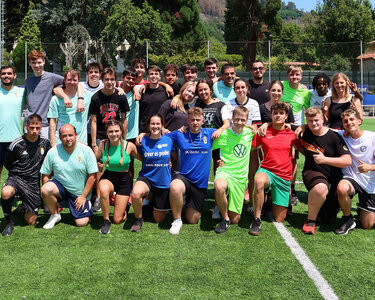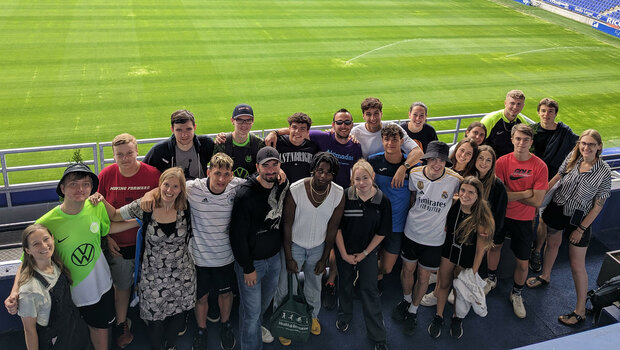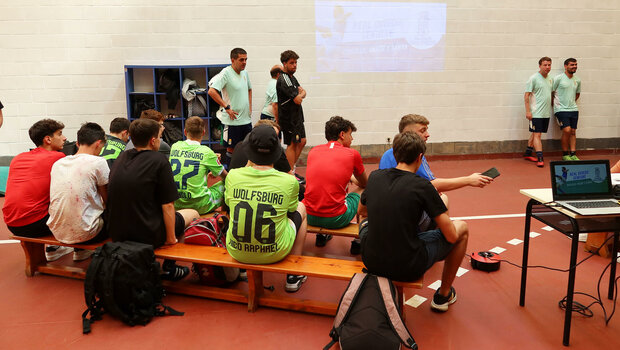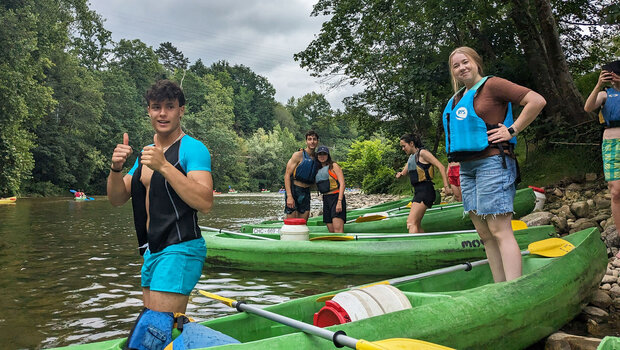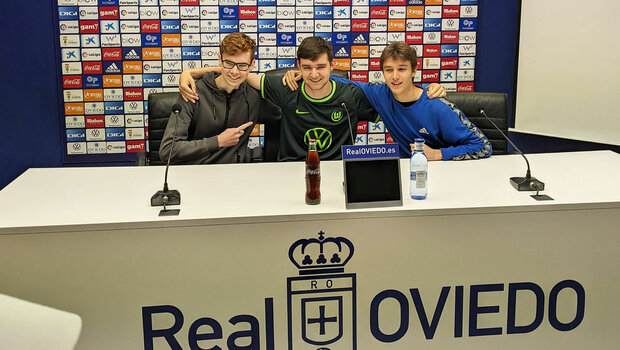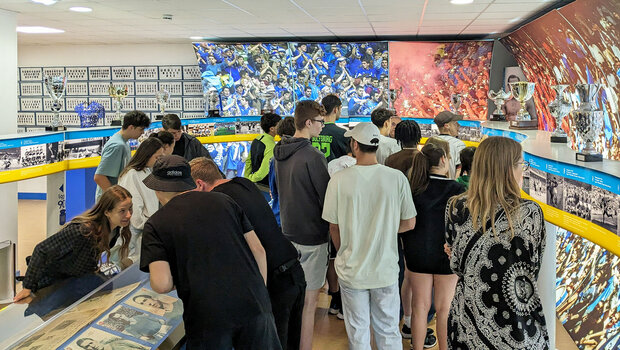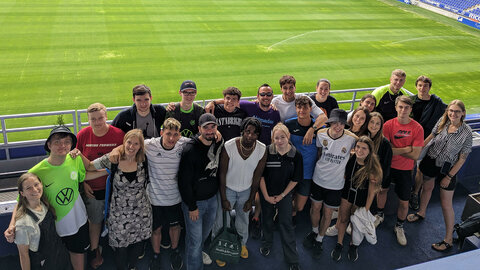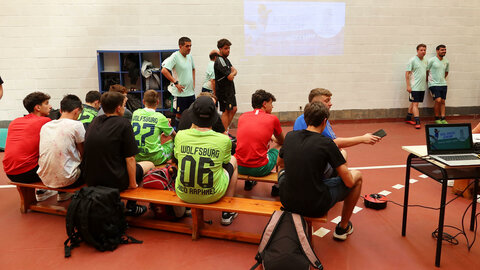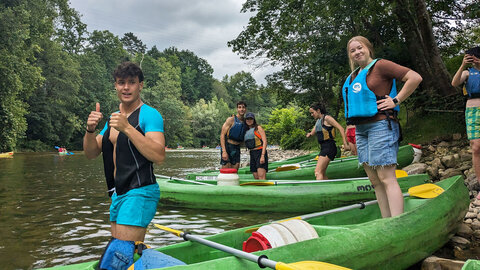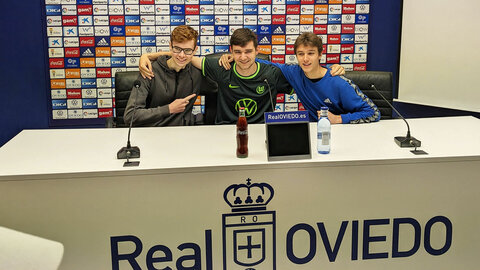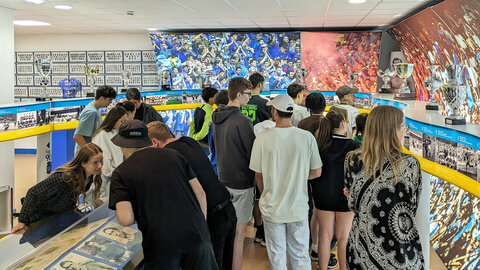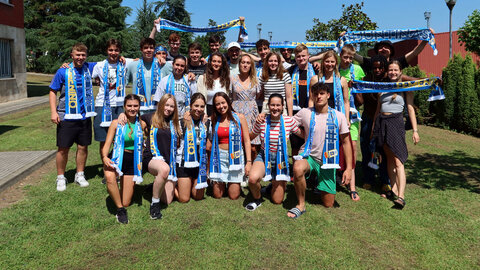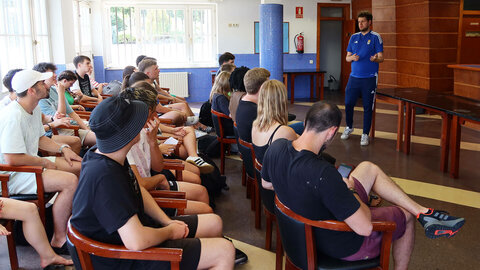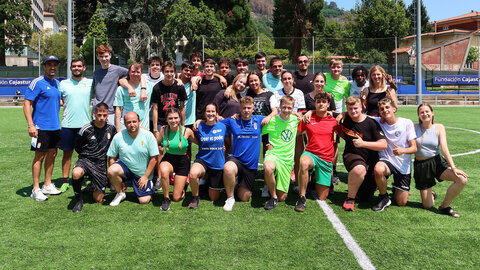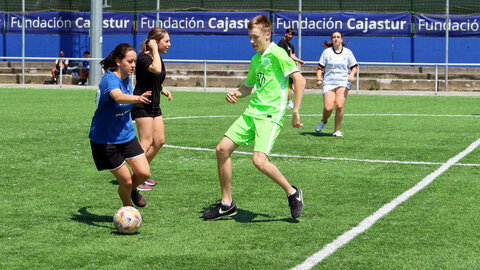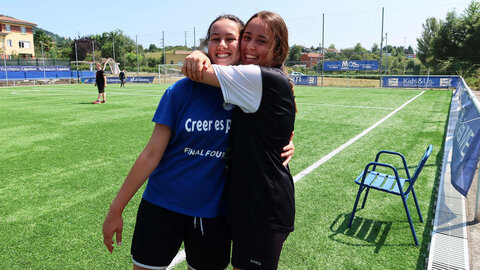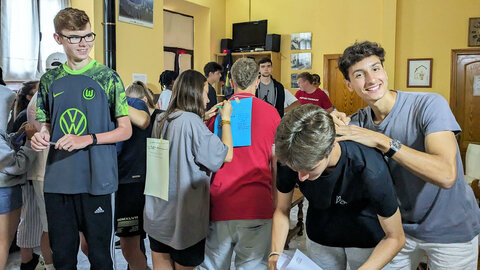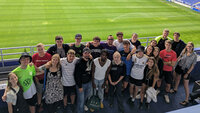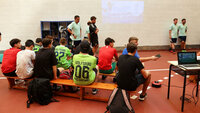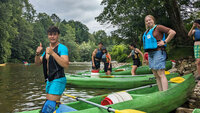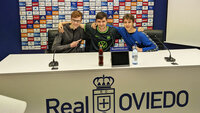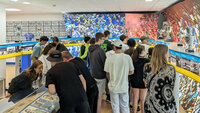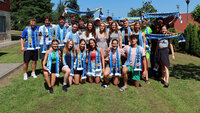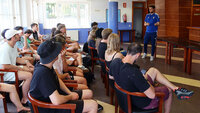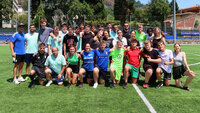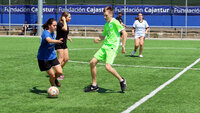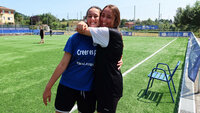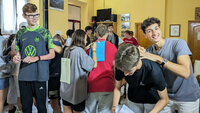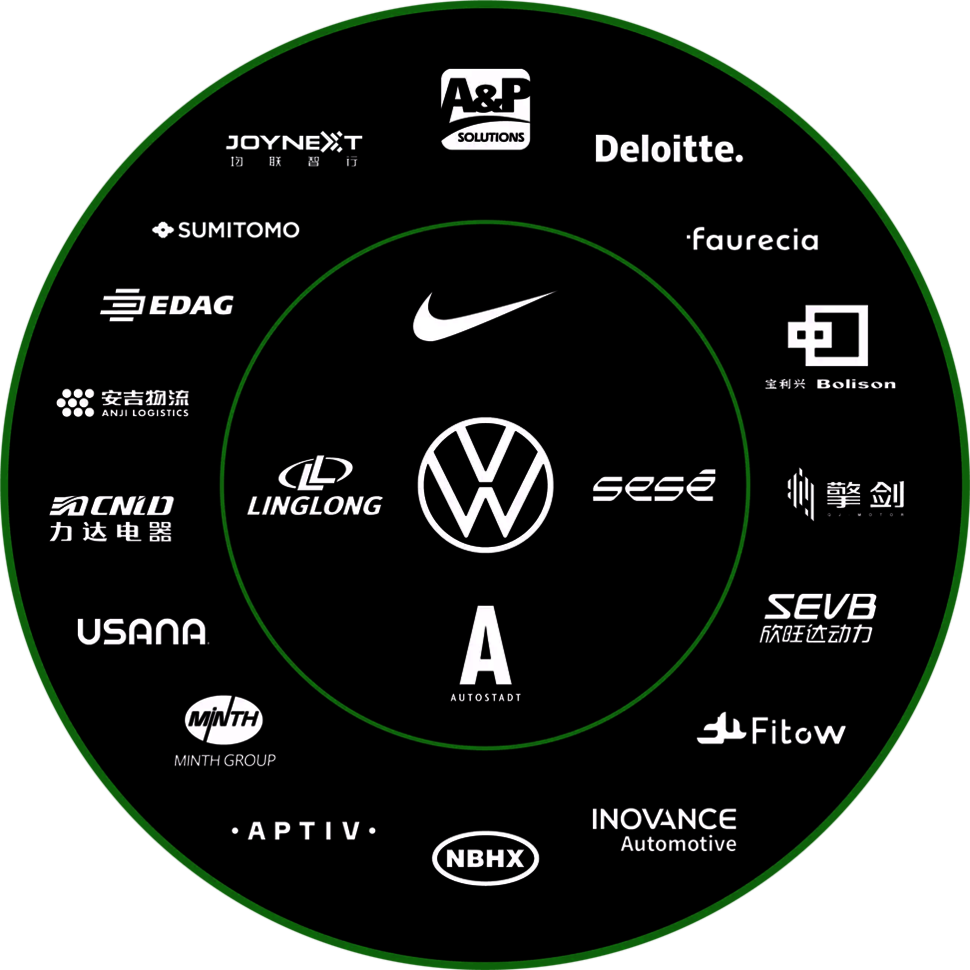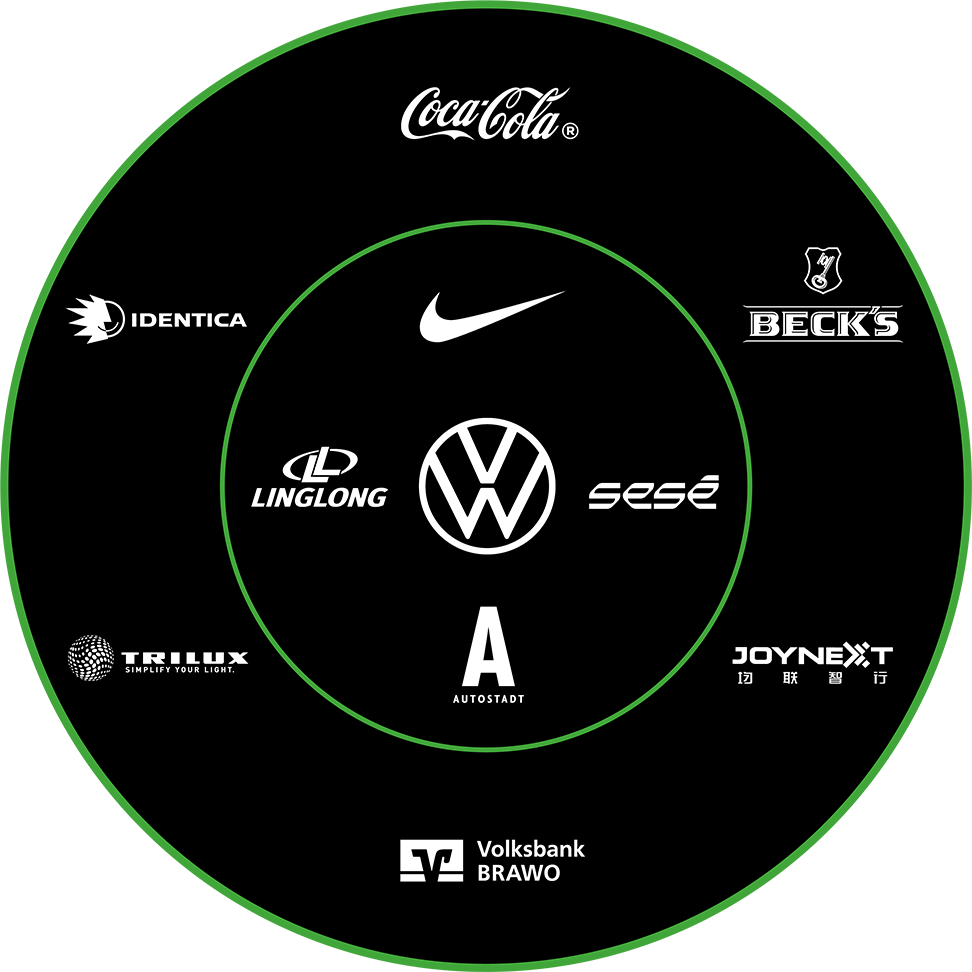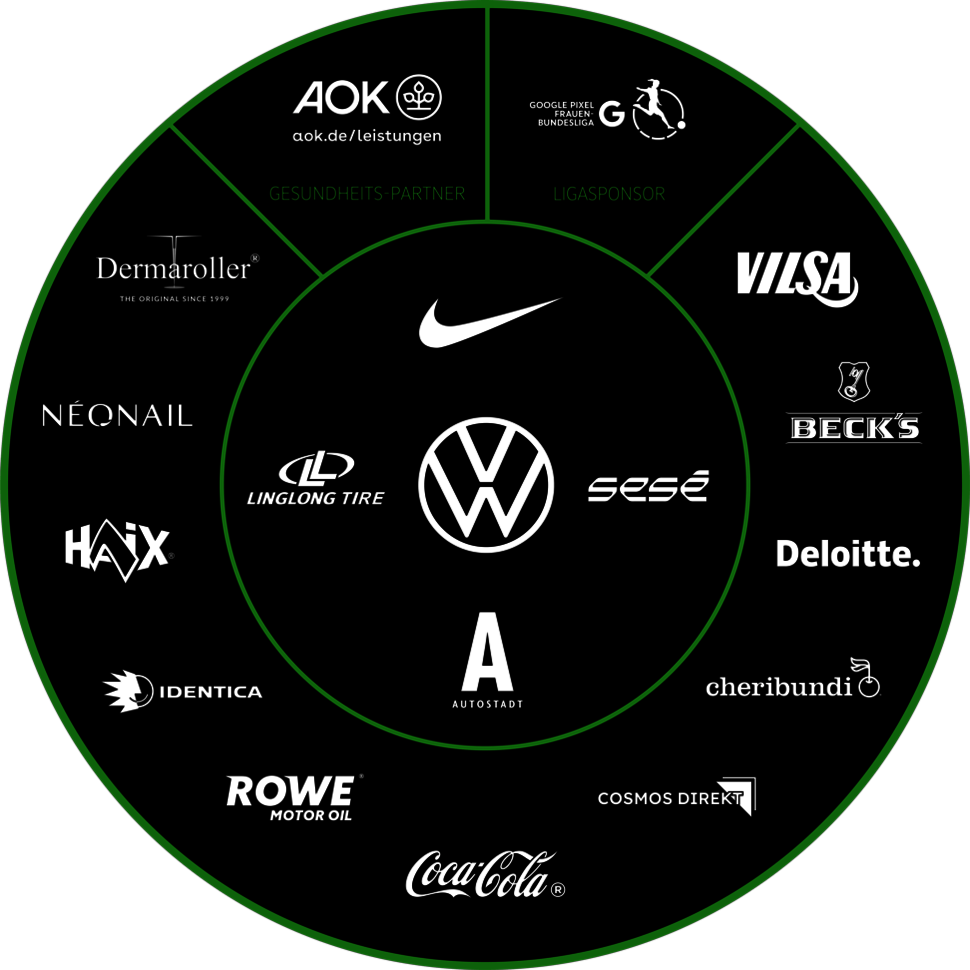In 2018, the Lernort Stadion e.V. organisation launched the “Kick for Europe” international youth exchange project. Since then, young people from Germany and Europe have been coming together several times a year in the scope of various different mutual exchange programmes, to get to grips with topics such as solidarity, diversity, tolerance and European (football) history.
With the support of the German Foreign Office, the project promotes social cohesion across European democracies by means of cross-country meetings and joint activities, with the aim of counteracting populist and nationalistic tendencies. Through workshops, playing and watching football, motivational talks, city rallies based on specific themes and most notably a sense of togetherness, the youngsters learn what it means to live in a united Europe.
Exciting exchanges
Last year, the first meetings with teenagers from Oviedo in Spain took place in Wolfsburg. Topics for discussion included European values, the 17 United Nations sustainability goals and of course the upcoming World Cup in Qatar. This time around, it was the turn of Wolfsburg’s youngsters to head to Spain, and from 7 to 13 July, the group got together with 10 of their counterparts from Oviedo to develop their own ideas and initiatives on the subjects of equal pay, support and prejudices in women’s football.
To add practical experience to the theoretical side of the project, the youngsters got to visit Real Oviedo’s men’s and women’s teams. In what turned out to be a unique interview opportunity, they got to talk to the manager, coach and captain of the women’s team about their experiences of prejudice and discrimination, tips, successes and what they like most about the sport. After the interview, everyone headed out onto the pitch for a kick-around, including players with mental disabilities – a further social project on the Spanish side that was brought to life. The youngsters from Wolfsburg got to find out more about the opportunities and obstacles that these people had come across and see at first hand how football can be a means of supporting people with disabilities.
Friendships made
While it was a busy programme for the youngsters, there was still time for them to get to know their hosts in a more relaxed atmosphere. The youngsters spoke about their respective cultures, languages and everyday lives and new friendships were made on all sides. There was an intercultural evening where the participants cooked and ate together. There were also canoeing expeditions, swimming and tours of the cities of Gijon and Oviedo, which were great fun for all involved and brought the youngsters closer together.
